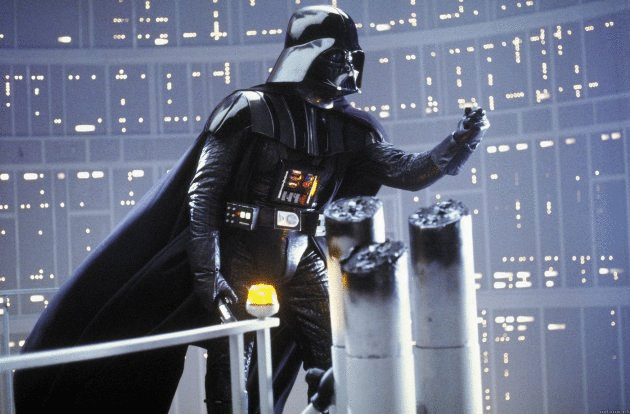|
I have to admit that I'm a secret fan of this cliché.* You know how it goes: hero devotes his life to defeating bad guy. Hero finds out he's related to bad guy. Hero undergoes serious mental trauma as a result. It's one of the oldest and most venerable fantasy clichés, with roots steeped in mythology.** And yet it endures to the present day. The appeal of this cliché is obvious. We like our protagonists to suffer, and what greater torment can there be than learning that you're closely related to the very thing you despise? That kind of discovery can only lead to self-examination, self-doubt and maybe even self-loathing – exactly the kind of internal battle we love a hero to struggle with. Not only that, but it's a battle we can relate to. We all have a sense of our own identity: a few fundamental characteristics that define us in our own eyes and underlie everything we do, like the pillars holding up a temple roof. Take one of those supports away and the whole edifice begins to crumble.
And, of course, there's still more to it than that. Deep down, I think we all fear that we'll turn into what we hate. Indeed, perhaps we hate certain things precisely because we have the sneaking suspicion that we could easily become them – because we know we have an affinity with the darkness. That's the undercurrent that flows between Skywalker and Vader. Between Holmes and Moriarty.*** It's the conflict between angel and devil that lurks in all of us. In that sense, the I Am Your Father cliché is successful because it speaks directly to our own fundamental anxieties. This is a cliché that has a valid psychological rationale behind it, and for that reason I'm sure it's here to stay. But like all clichés, it has to be used with care. The straightforward implementation that's exemplified by Darth Vader would probably seem too much of an obvious plot device to a modern audience used to such things. Put your own spin on it, though, and it will be one cliché that still has a genuine impact on the reader.**** * Well, not that secret, or I wouldn't have mentioned it online. ** Probably Oedipus. It usually is. *** OK, I'm not aware that Moriarty turned out to be Holmes' father, but you get the point. **** Particularly if you can avoid using the line 'I am your father/mother/brother/great-great-aunt …'
1 Comment
27/10/2012 02:03:34 am
Until I started writing my book, i never even gave fantasy tropes of cliches a thought. Then I joined writing sites and discovered i had committed this very sin - oops. In my defence, my mc knows from very early on, and dealing with the knowledge is as important as the discovery. I agree - I think it is our fears that drive us as much as if not more than our desires.
Reply
Your comment will be posted after it is approved.
Leave a Reply. |
Archives
July 2016
Categories
All
|

 RSS Feed
RSS Feed
